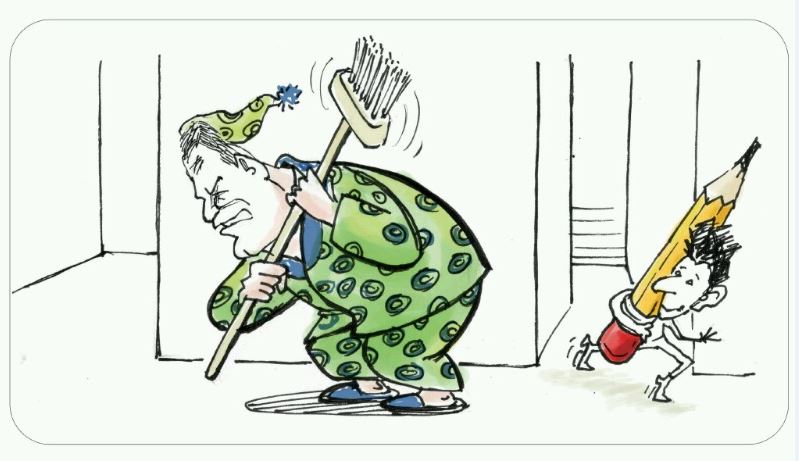Communications Law in Ecuador: When Censoring a Cartoon Becomes a Presidential Priority
Since President Rafael Correa won his reelection, he has used a series of laws and decrees to constrain criticism and dissent. The most visible victims of these new laws are journalists. In June 2013, the National Assembly passed a restrictive communications law that designates the media as a public service subject to government regulation. Additionally, the law introduced “media lynching,” which is defined as repeated reporting that has a negative effect on a person’s reputation without sufficient evidence.
Political cartoonist Xavier Bonilla was the first victim of this law. Earlier this month, Bonilla published a cartoon depicting the house raid of journalist Fernando Villavicencio. President Correa called Bonilla, among other things, “an assassin with ink.” Bonilla was forced to publish a correction, and El Universo paid a large fine.
Join Bonilla along with Martha Roldós of Fundación Mil Hojas and CPJ’s Carlos Lauría on March 5 from 12:00-2:00 p.m. at CIMA’s latest event examining media in Ecuador. Our panelists will discuss the restrictive nature of the communications law in Ecuador, offer commentary on how this law violates international norms and standards of freedom of expression, and provide insight on the future of media in Ecuador.
Register for the event here, and if you can’t make it to our discussion, watch the event live here.


Comments (0)